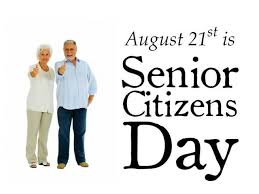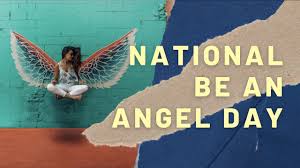Dictionary Day – October 16, 2022, history,significance
Dictionary Day on October 16 celebrates the birth of Noah Webster, an American writer who was born in 1758. Webster is best-known for publishing the first dictionary in 1806, which he continued to compile and expand for the next 27 years.
When his dictionary was published in 1828, it was a formidable resource packed with useful words and spelling updates. Webster was a true pioneer for creating the reference book we use so ubiquitously, so we’re celebrating him today!
HISTORY OF DICTIONARY DAY

The man who would someday become the father of the dictionary as we know it today, Noah Webster, was born on October 16, 1758, in Hartford, Connecticut. His father, a farmer and craftsman, and his mother, who stayed at home, headed a very middle-class and typical colonial family. When scholarly young Noah was 16, he set off for Yale — the first college in Connecticut. Since law was too expensive of a career path, Noah chose to go into teaching.
It was in teaching that he first felt compelled to reform the burgeoning American academic system and language. His first textbook was issued in 1783 and covered the grammar of the English language. Due to its blue cover, it came to be known as the “Blue-Backed Speller.” This little blue book became the most popular book in America in the day and age.
Refining teaching English and the education system wasn’t enough for Noah. After marrying Rebecca Greenleaf in 1789, he set about in 1801 to define many of the terms that set apart American English from the way the language was spoken in England. He also moved to Amherst, Massachusetts for the purpose of founding Amherst College, then later moved back to New Haven.
Many of us are familiar with the spelling differences between English and American English words like ‘color.’ Much of that can be credited to Webster, who, in his first edition of the American English dictionary in 1806, took time to correct English spellings to American English ones.
Another example: Webster re-spelled ‘musick’ as ‘music.’ Though this bestselling dictionary defined no less than 37,000 words, he was unsatisfied. The next 22 years of his life would be dedicated to editing and adding new words. Eventually, at the old age of 70, Webster published his new dictionary in 1828. The book defined over 65,000 words.
After Webster died in 1843 as an American hero who pioneered the dictionary and supported both the abolition of slavery and universal education, G & C Merriam, Co. purchased the rights to his “An American Dictionary of the English Language”. The Merriam brothers behind the company, George and Charles, continued to refine Webster’s dictionary, eventually giving us the Merriam-Webster dictionary we know today.
DICTIONARY DAY TIMELINE
October 16, 1758
Webster is Born
Webster is born to an average colonial family — his father is a craftsman and farmer, while his mother stays at home in their Hartford, C.T. house.
1801
Defining American English
Webster begins to work on definitions and listing the words used by Americans, rather than the English — helping to define the emerging and uniquely American vocabulary.
1806
First Edition Published
Webster’s first edit of an American English dictionary, titled “A Compendious Dictionary of the English Language,” is published and defines 37,000 words.
1828
Edited Edition Published
Over the course of 22 years, Webster edits the first edition of his dictionary to create the “American Dictionary of the English Language” — this new edition defines 65,000 words.
May 28, 1945
Webster Passes Away
At the ripe old age of 84, Noah Webster passes away — he is survived by five of his eight children, and his wife, Rebecca.
DICTIONARY DAY ACTIVITIES
Play word games like Scrabble
A word-based game like Scrabble is one of the best ways to honor the dictionary! You couldn’t play ‘whiz-bang’ for 77 devastating points without the dictionary to help you get there.
Crack open a dictionary
How long has it been since you’ve held a dictionary in your hands? We think it was probably in grade school. With so much accessible information online, we miss the physical book — the smell of the pages, the sound of them turning. Grab and open a dictionary and rifle through it to learn something new!
Post #NationalDictionaryDay
Noah Webster deserves all the credit for making such a fantastically useful resource book. Post #NationalDictionaryDay, and maybe someone in your circle will learn a new word in his honor.
5 INTERESTING FACTS ABOUT NOAH & THE DICTIONARY
He learned 26 languages
In order to write his uniquely American first dictionary, Noah Webster learned 26 new languages!
It cost $6
After the Merriam brothers revised Webster’s work in the mid-1800s, they sold the dictionaries for $6 apiece.
Webster created a newspaper
Noah Webster is credited with setting up New York City’s first daily newspaper, “American Minerva,” to later become “Commercial Advertiser.”
Webster was highly involved in social issues
From being one of the earliest opponents of slavery (and secretary of the Hartford Anti-Slavery Society) to examining evidence and debating the existence of global warming, Webster was very involved in the important social issues of the day.
Webster had a great poet in his family
T.S. Eliot, the renowned poet, was the great-nephew of Noah Webster — seems like a great command of the English language and literature ran in the family.
WHY WE LOVE DICTIONARY DAY
It teaches new words
Most obviously, the dictionary is a fantastic resource for new words. For centuries now, it’s been used to define the English language, and given us a common rulebook for communication. Practically any time you flip to a new page in the dictionary, you learn something new!
It honors an important pioneer
If you don’t know the history of the dictionary, today is a great day to do some research. Noah Webster was a prolific author and textbook pioneer who ultimately left his impact upon the English language. This is the best day to honor his memory and learn his history.
It defines our language
Besides adding words to the standard English language, Noah Webster helped define and change spellings of old English words that needed to be adapted for the new era. He actively pruned and grew the English language that we know today!
Sandeep Raiza — Content Writer, Website Designer, SEO Strategist, and WordPress Expert AI specialist delivering impactful digital solutions that drive business growth.Combining creative storytelling with technical expertise.



